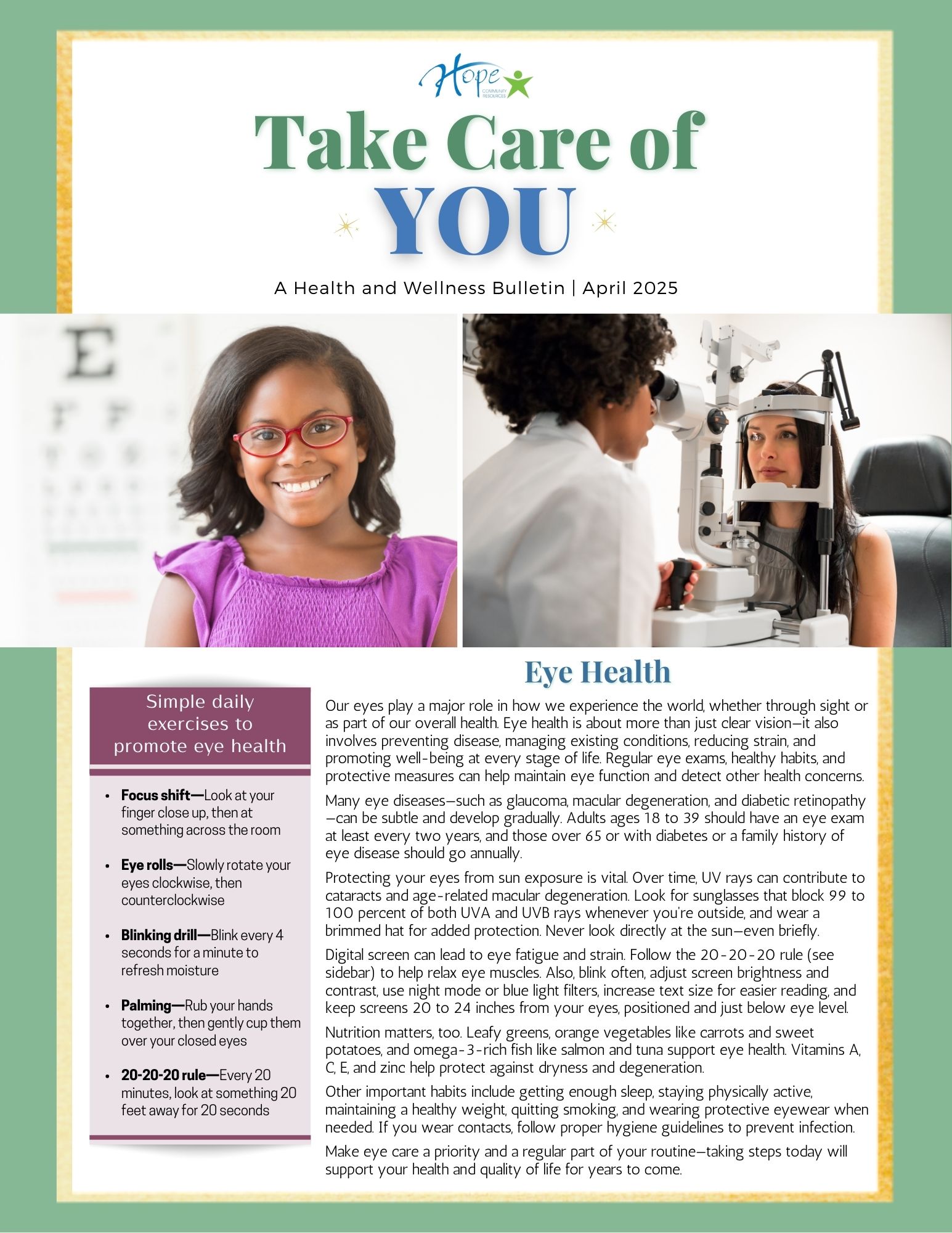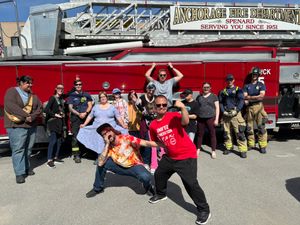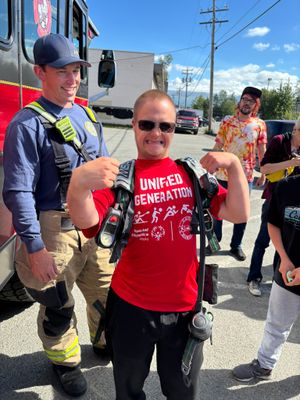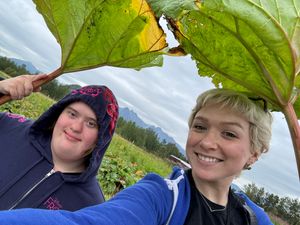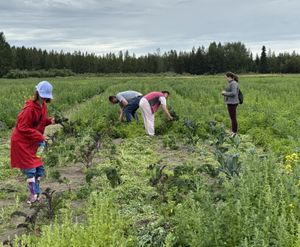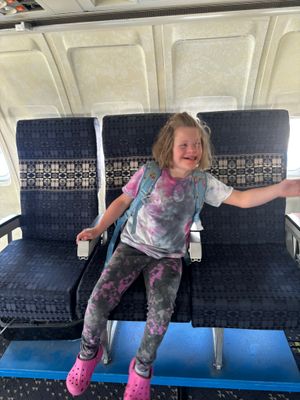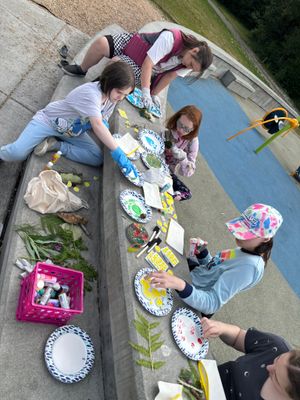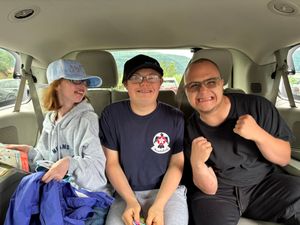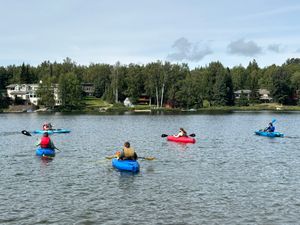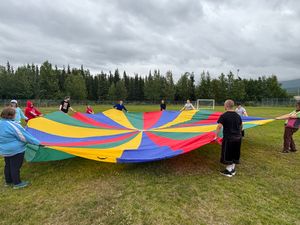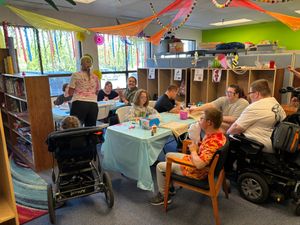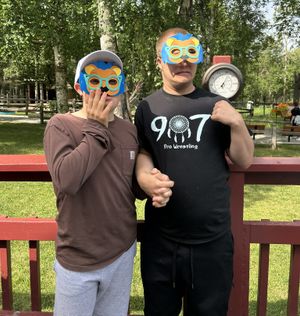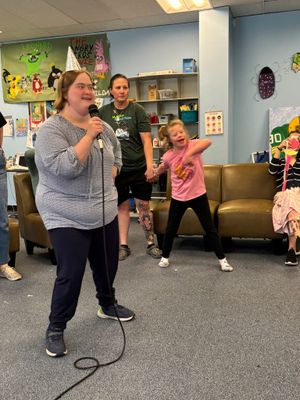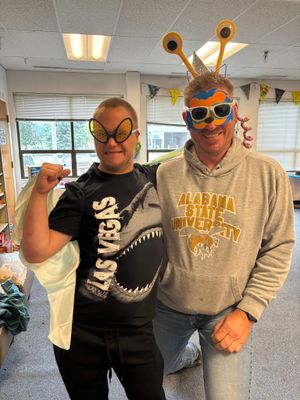Flooring Upgrades in Two of our Homes
September 26, 2025
We’re excited to share some wonderful updates from two of our assisted living homes! Thanks to generous funding from the Alaska Mental Health Trust Authority (AMHT), both homes now have new luxury vinyl plank flooring throughout, making them safer, more comfortable, and more accessible for both residents and staff.
The old flooring had become worn from years of use, uneven in places, and presented challenges for those with limited mobility, visual impairments, balance issues, or those using wheelchairs and walkers. The new flooring addresses these concerns, creating a safer environment for everyone.
Beyond safety, the upgrade also improves the aesthetic of the homes. The flooring creates a more welcoming, comfortable atmosphere. Support recipients take pride in caring for their spaces, and these improvements help support their sense of ownership, well-being, and dignity. Our staff members also benefit from a more efficient workspace that minimizes maintenance and supports better hygiene.
We are incredibly grateful to AMHT for making these transformations possible. Their support directly impacts the quality of life for everyone in our homes. We also want to recognize our Maintenance team, who coordinated and completed the project efficiently, with residents’ comfort and safety top of mind.
These upgrades are more than just flooring—they are an investment in the happiness, safety, and independence of support recipients. The homes are now brighter, cleaner, safer, and more welcoming than ever, and the positive impact is already being felt by all who live and work there.
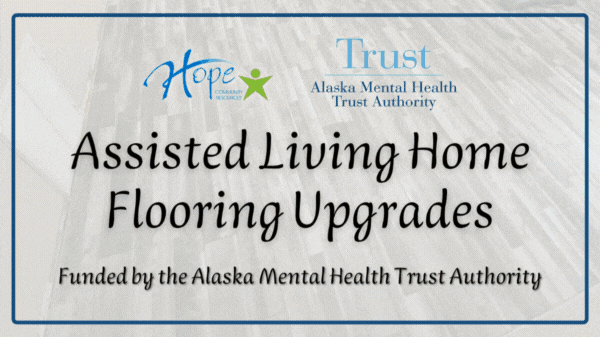
Municipality of Anchorage "Cultural Histories"
September 25, 2025
This year marks “Munification”—the 50th Anniversary of the unification of the City of Anchorage and the Greater Anchorage Borough. To commemorate, the Municipality invited Hope and many other local organizations, communities, and cultural groups to share their histories.
We are excited to share this new resource highlighting the history of Hope and the disability community. Please take a moment to read through and reflect on how our history—along with many others—have made a difference in our community and in people’s lives.
Happy DSP Appreciation Week
September 15, 2025
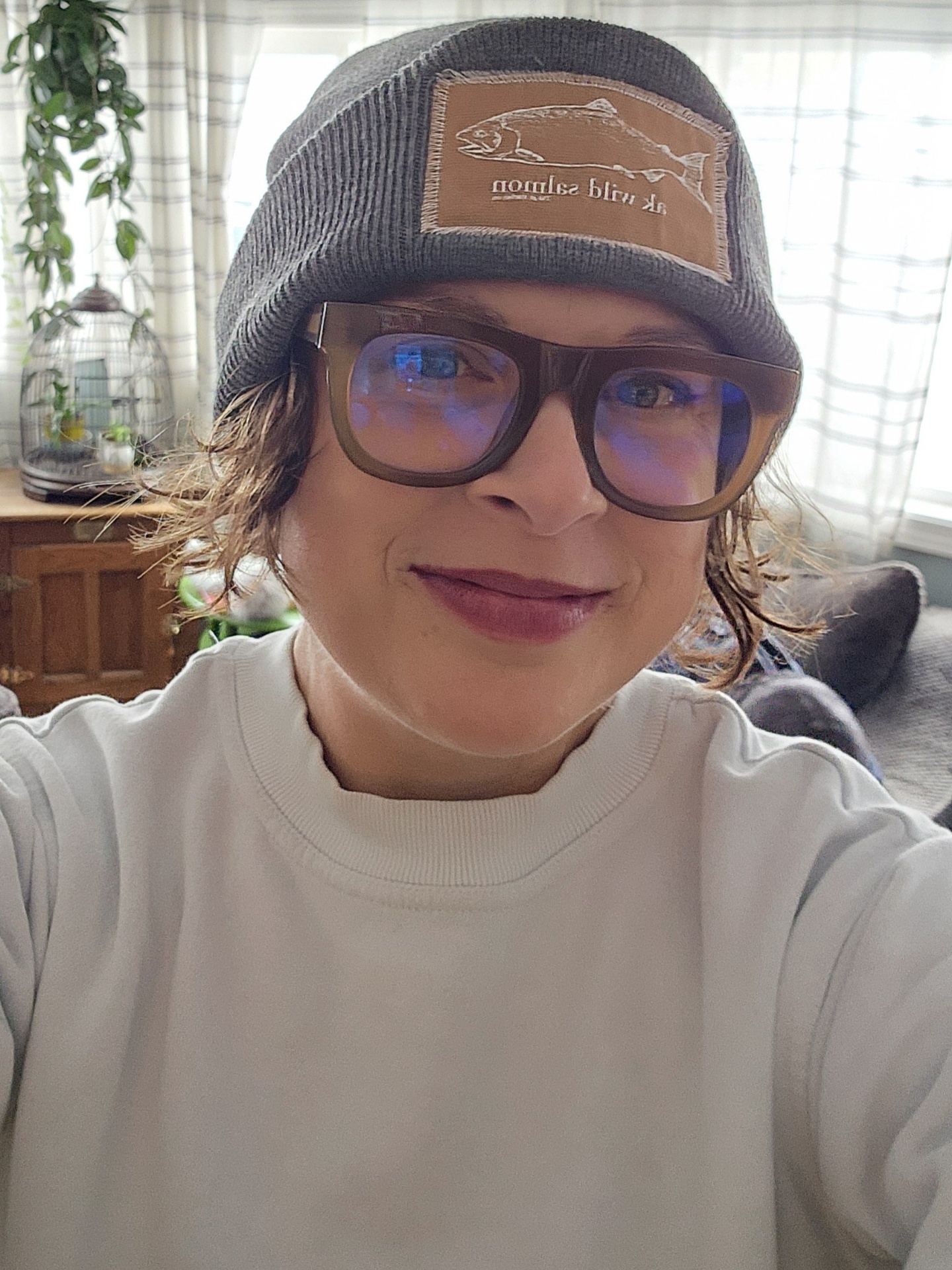 |
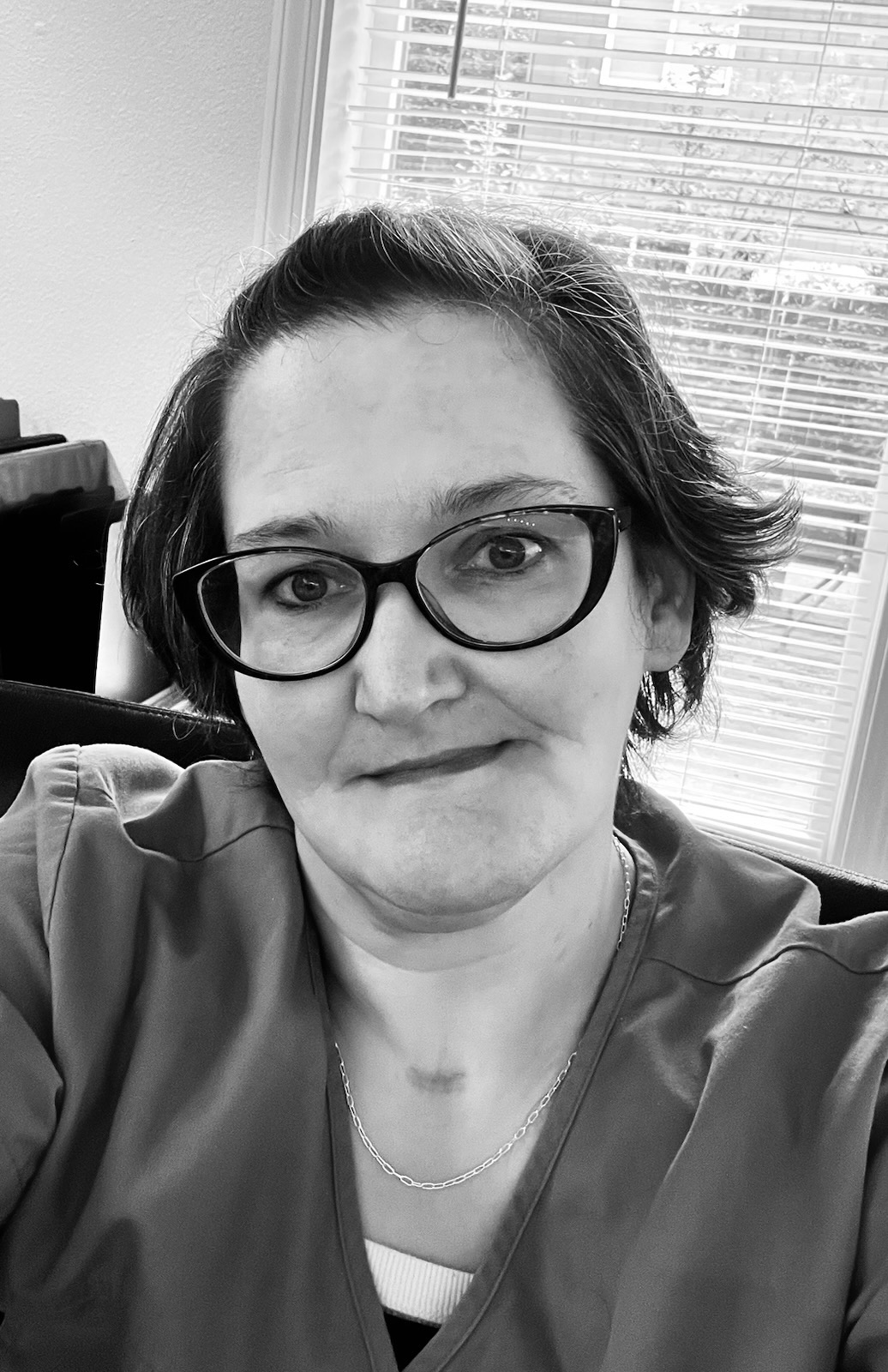 |
Happy DSP Appreciation Week
September 15, 2025
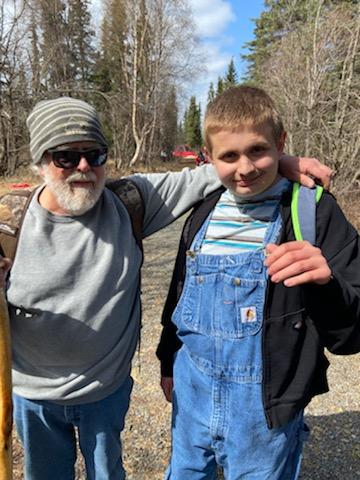 |
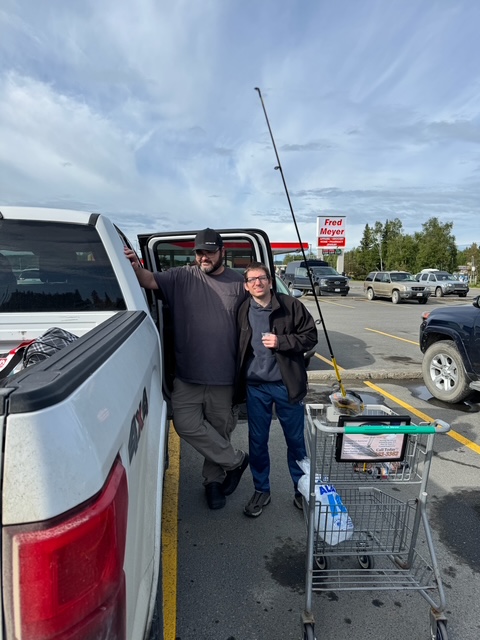 |
Happy DSP Appreciation Week
September 13, 2025
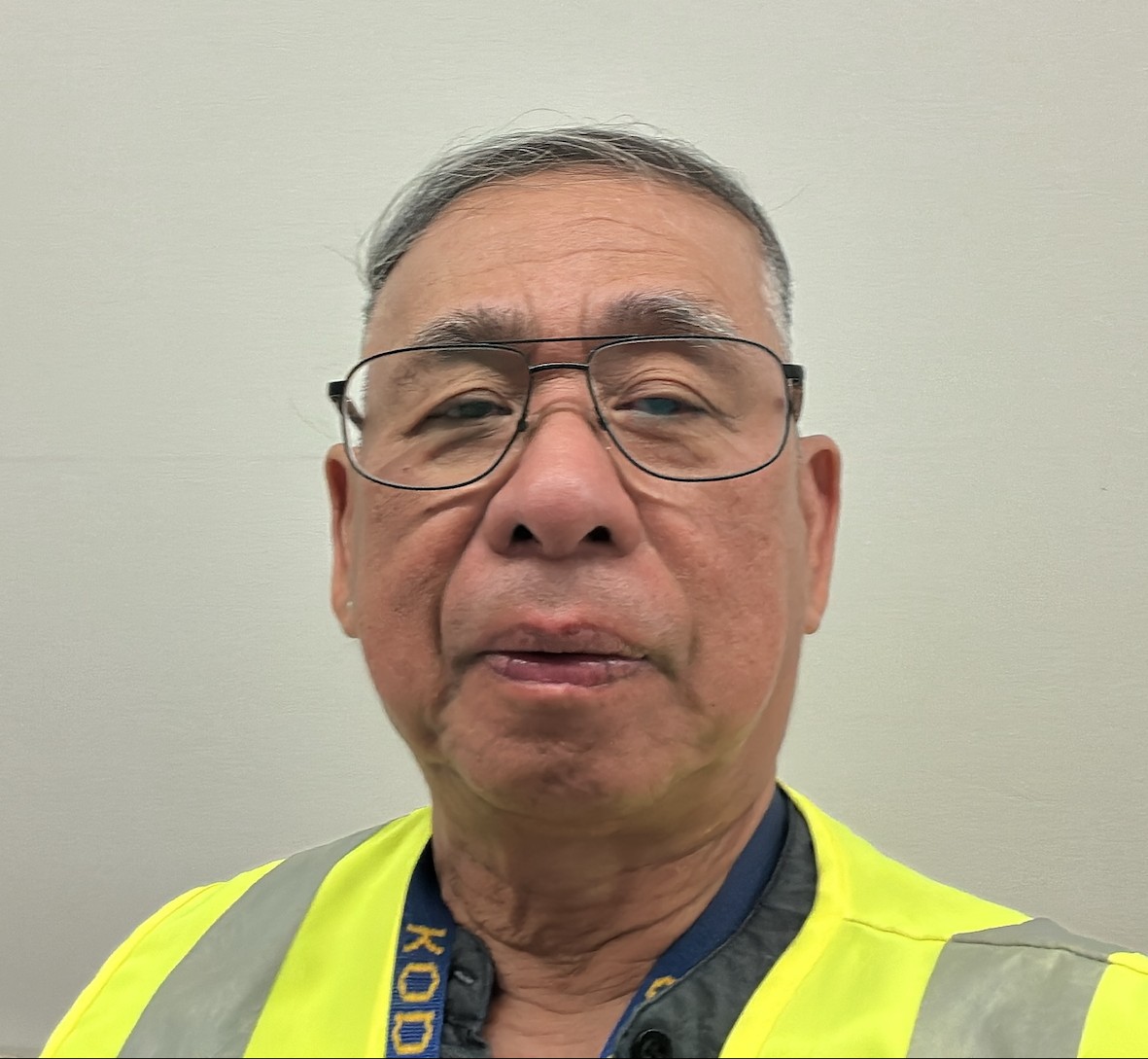 |
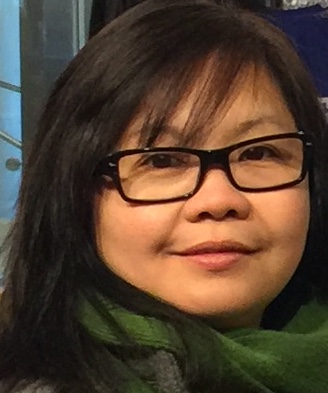 |
Happy DSP Appreciation Week
September 13, 2025
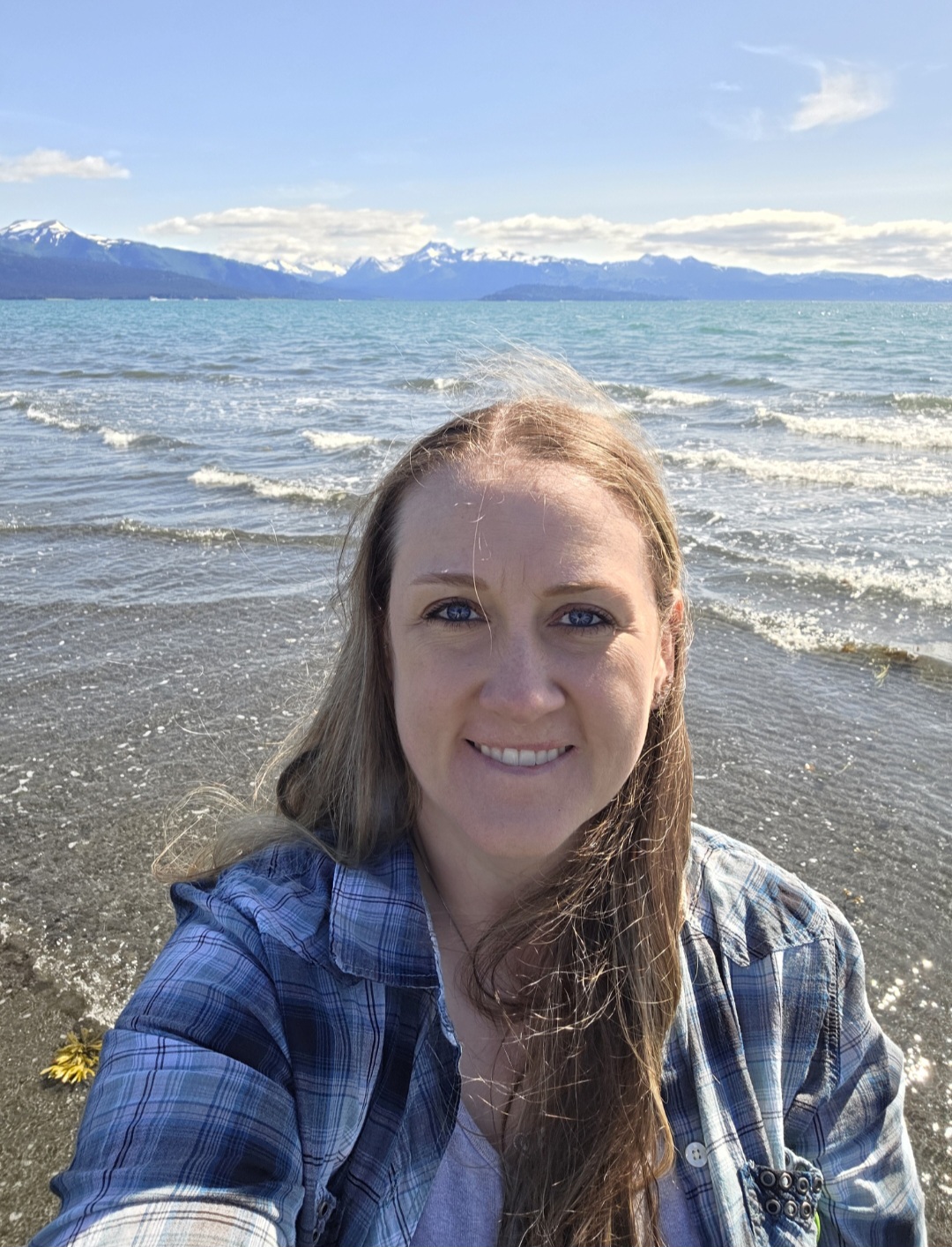
Happy DSP Appreciation Week
September 12, 2025
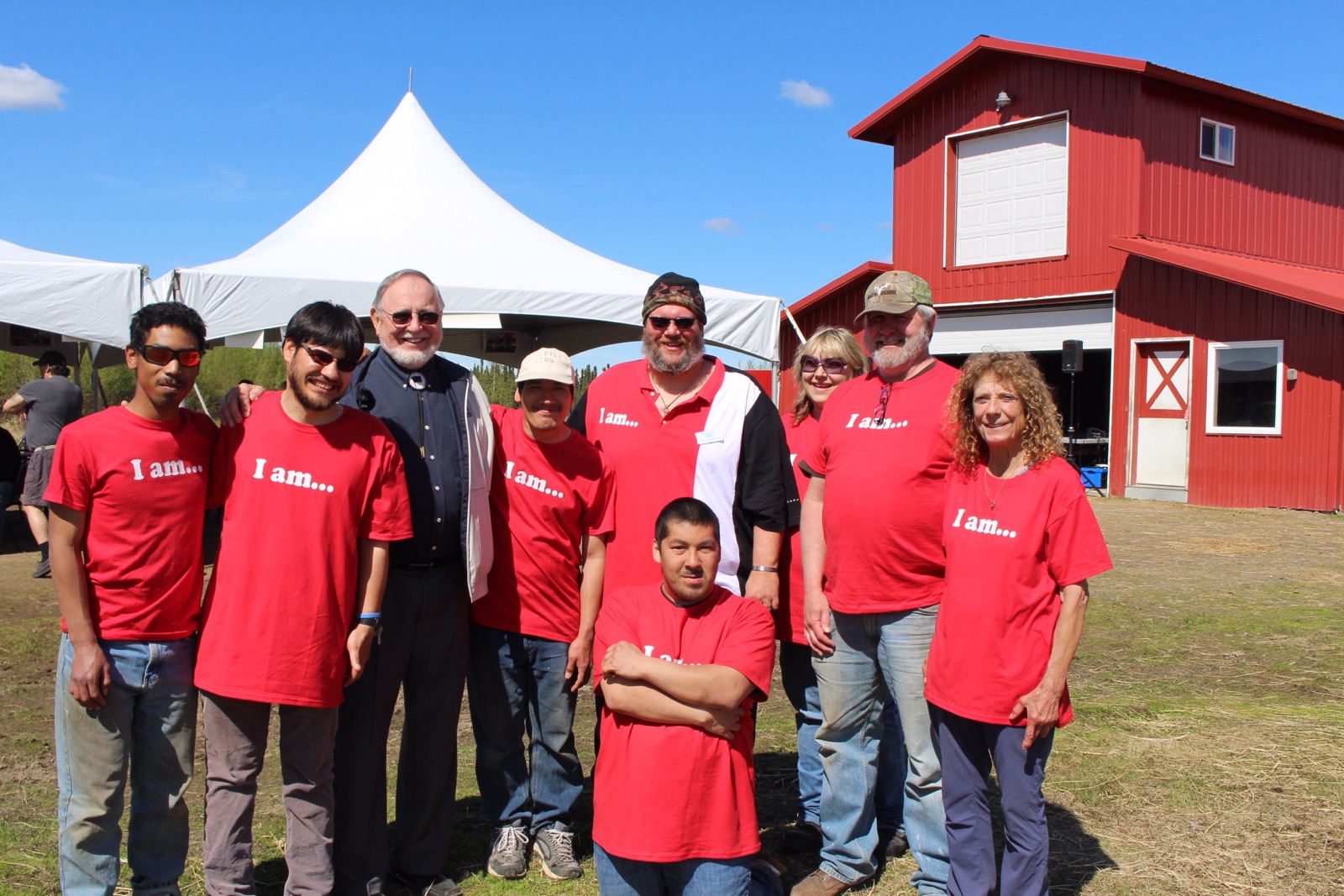
Happy DSP Appreciation Week
September 12, 2025
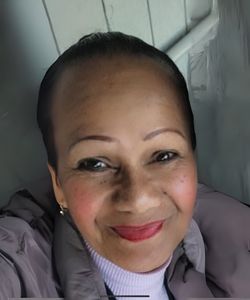
Happy DSP Appreciation Week
September 11, 2025

Happy DSP Appreciation Week
September 11, 2025
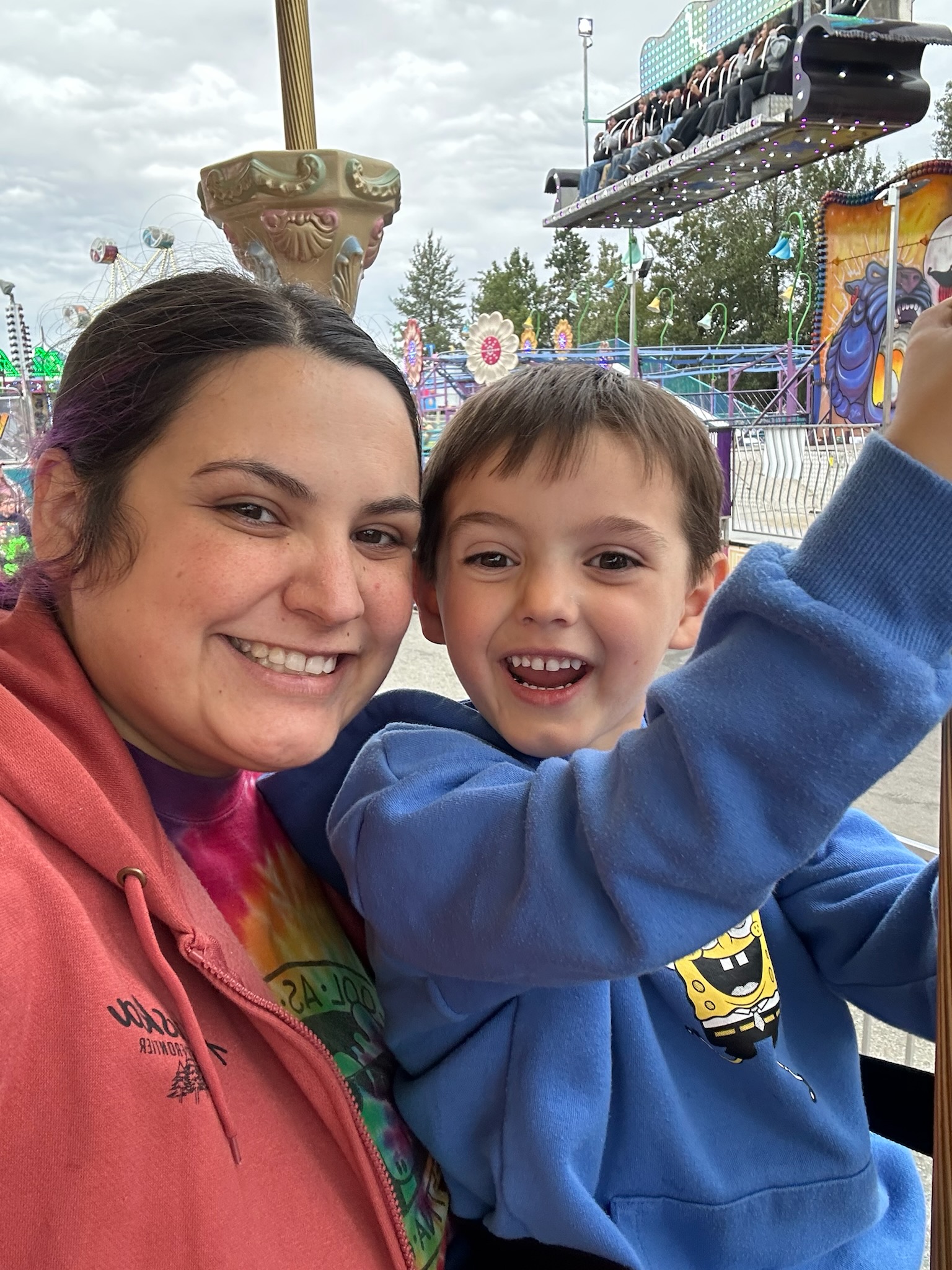 |
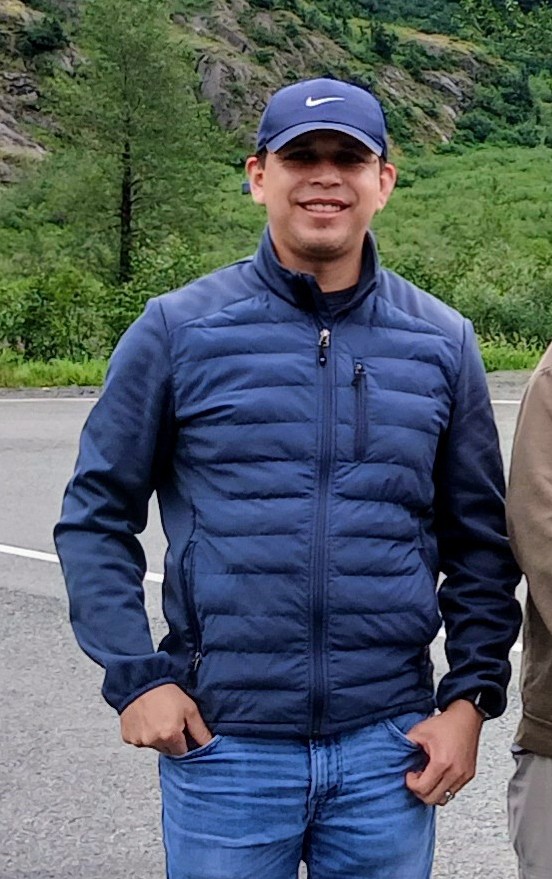 |
Happy DSP Appreciation Week
September 10, 2025
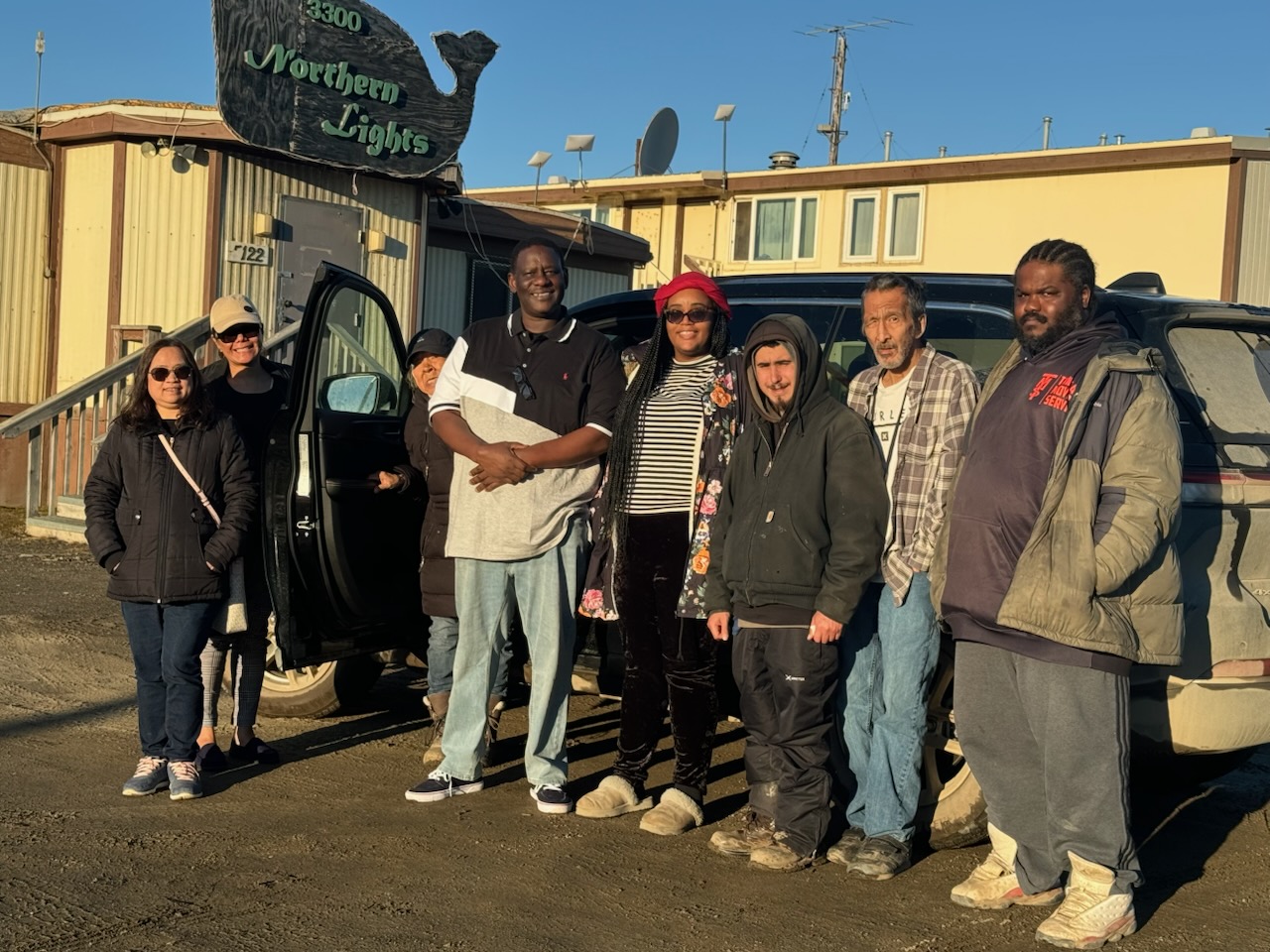
Happy DSP Appreciation Week
September 10, 2025
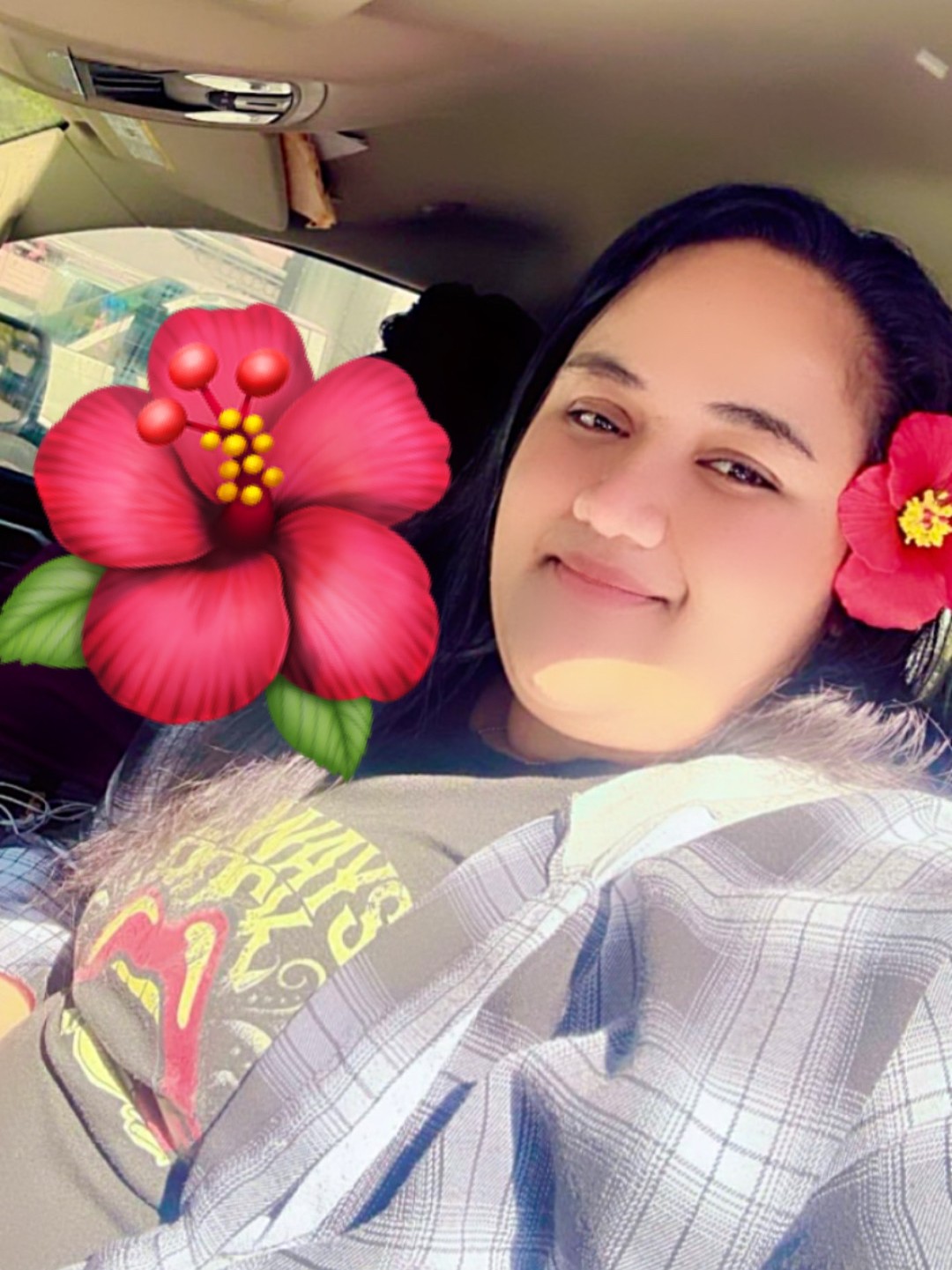 |
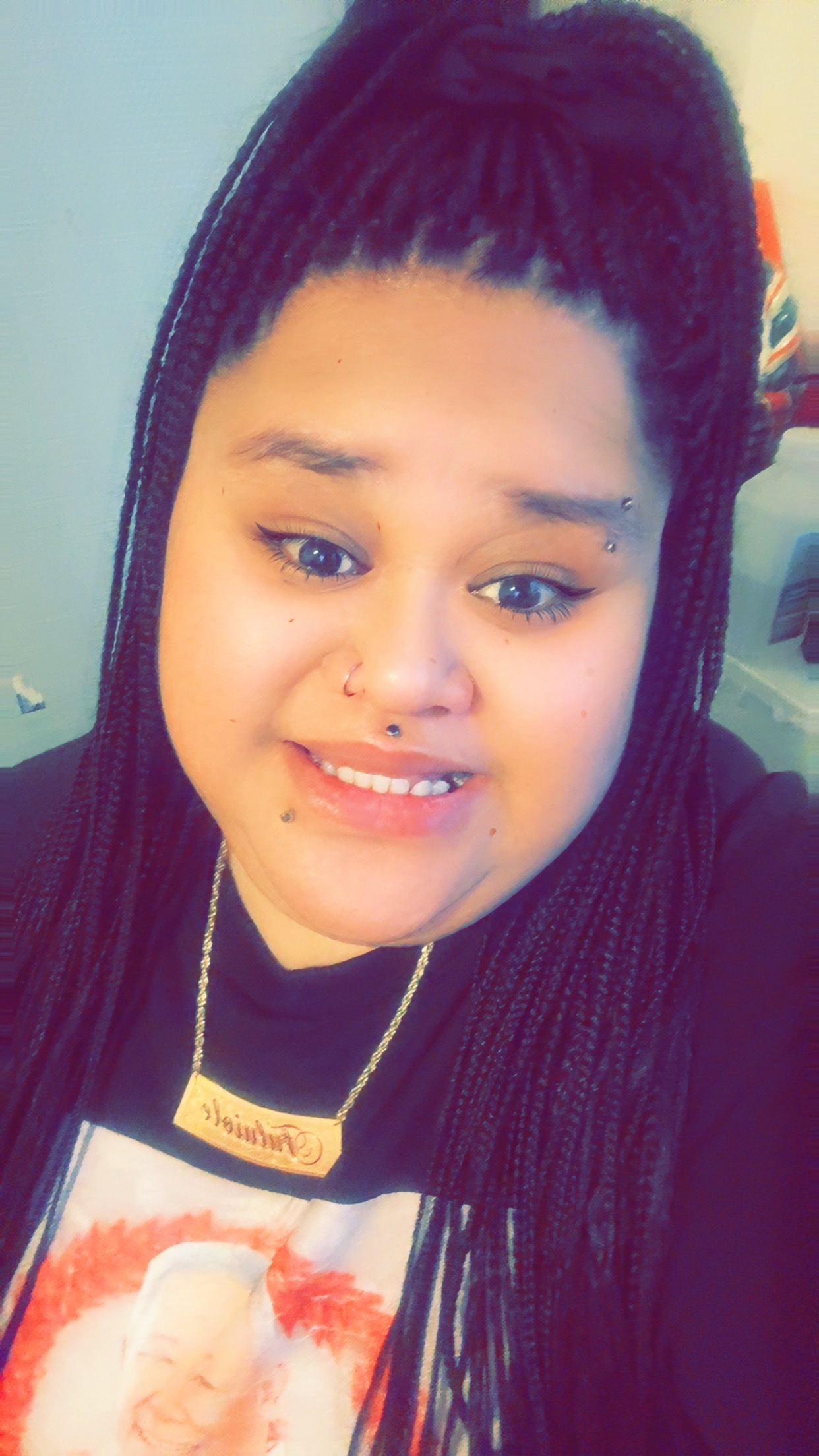 |
Happy DSP Appreciation Week
September 10, 2025
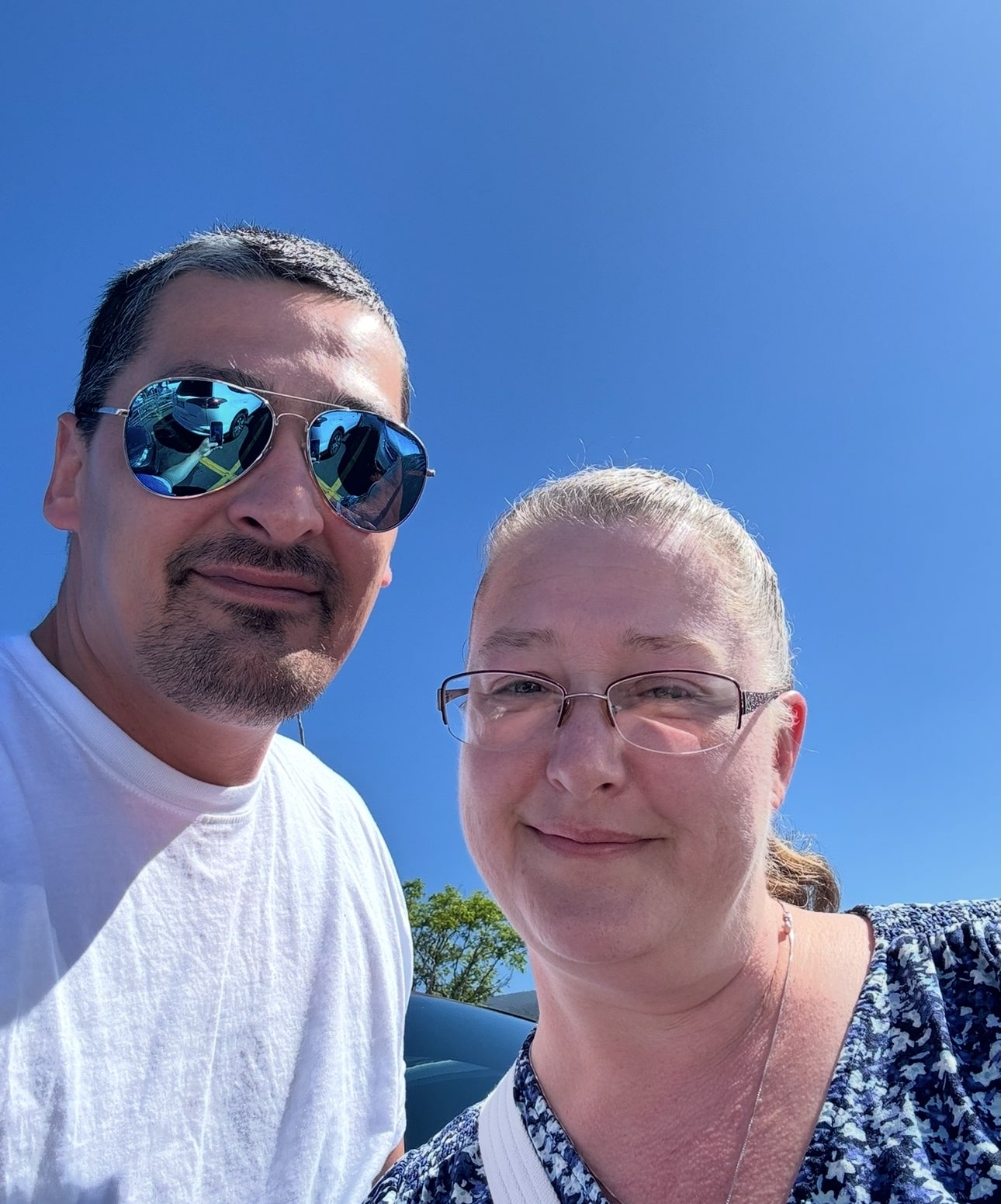 |
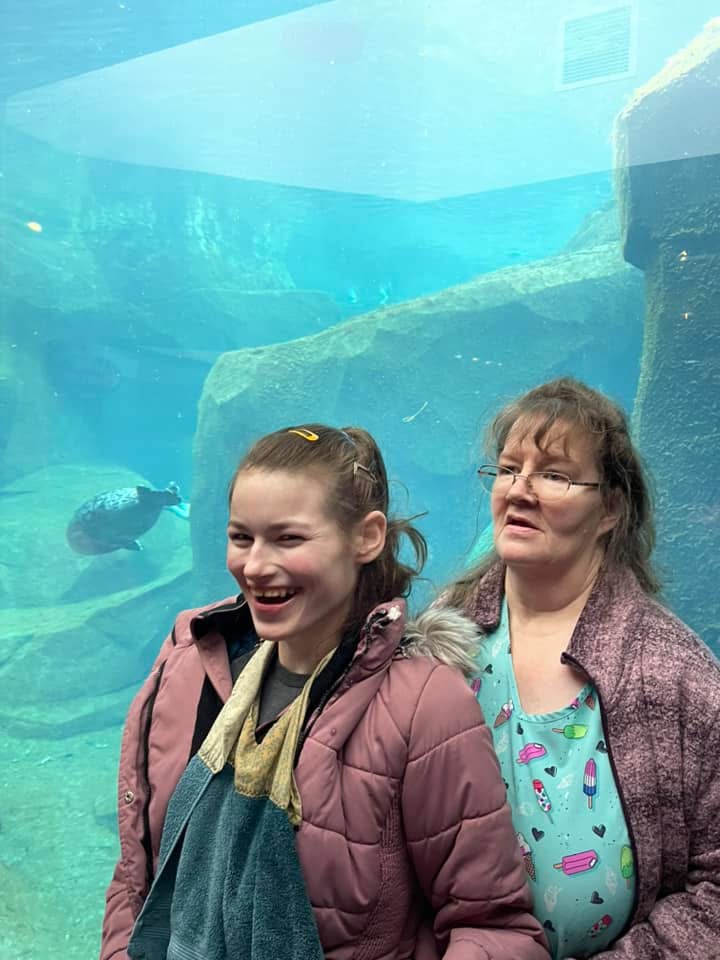 |
Happy DSP Appreciation Week
September 9, 2025
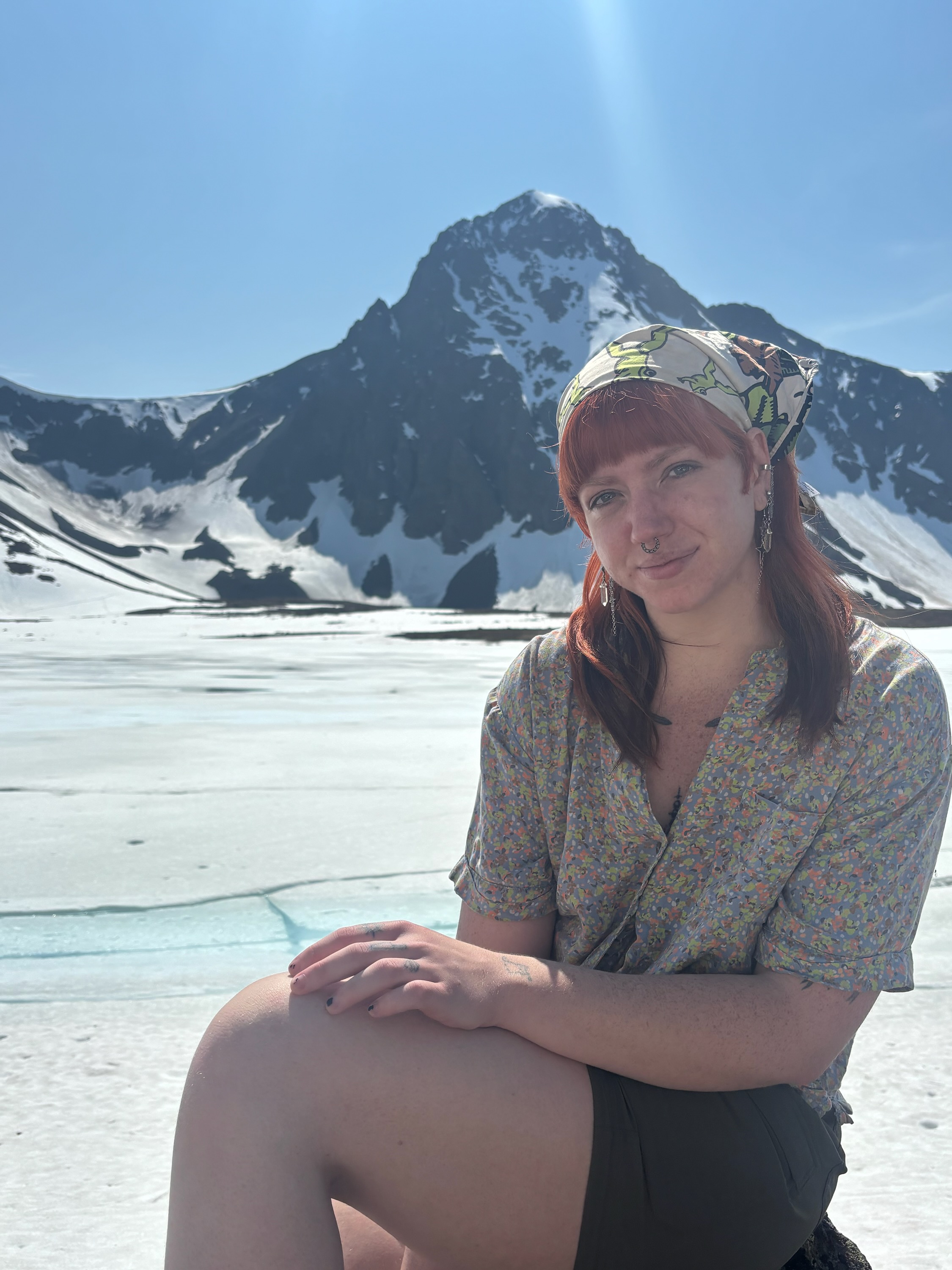
Happy DSP Appreciation Week
September 8, 2025
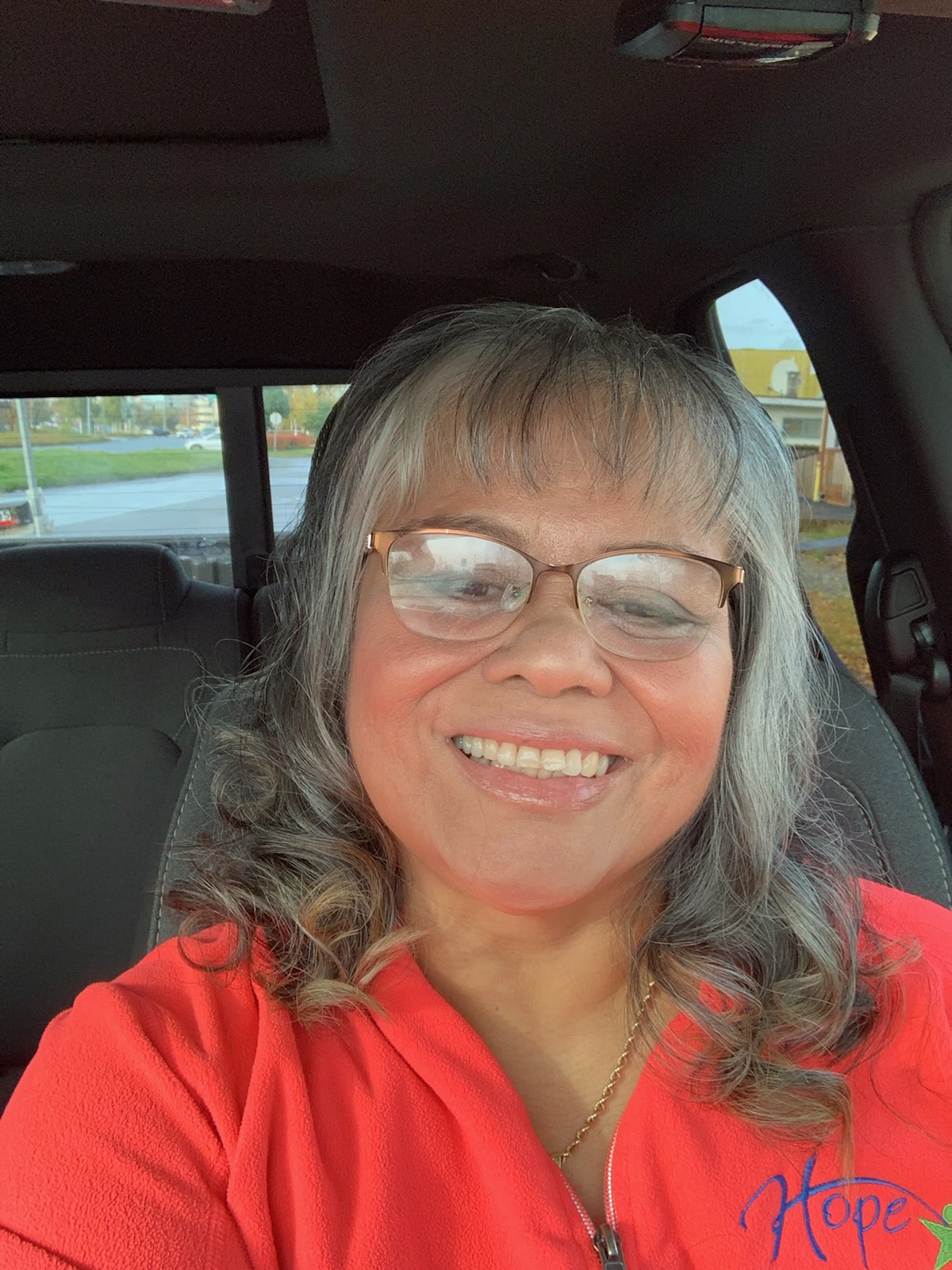 |
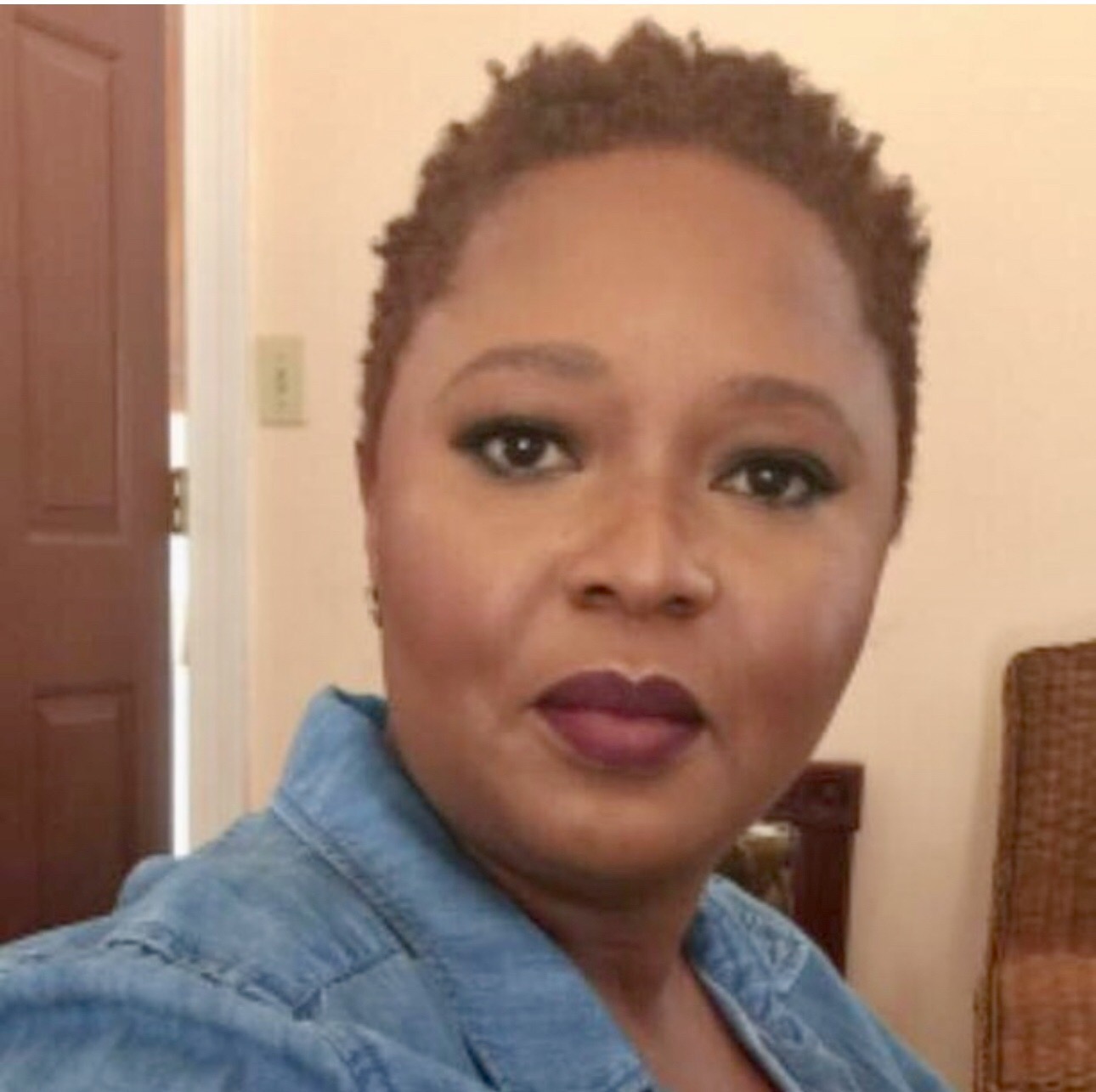 |
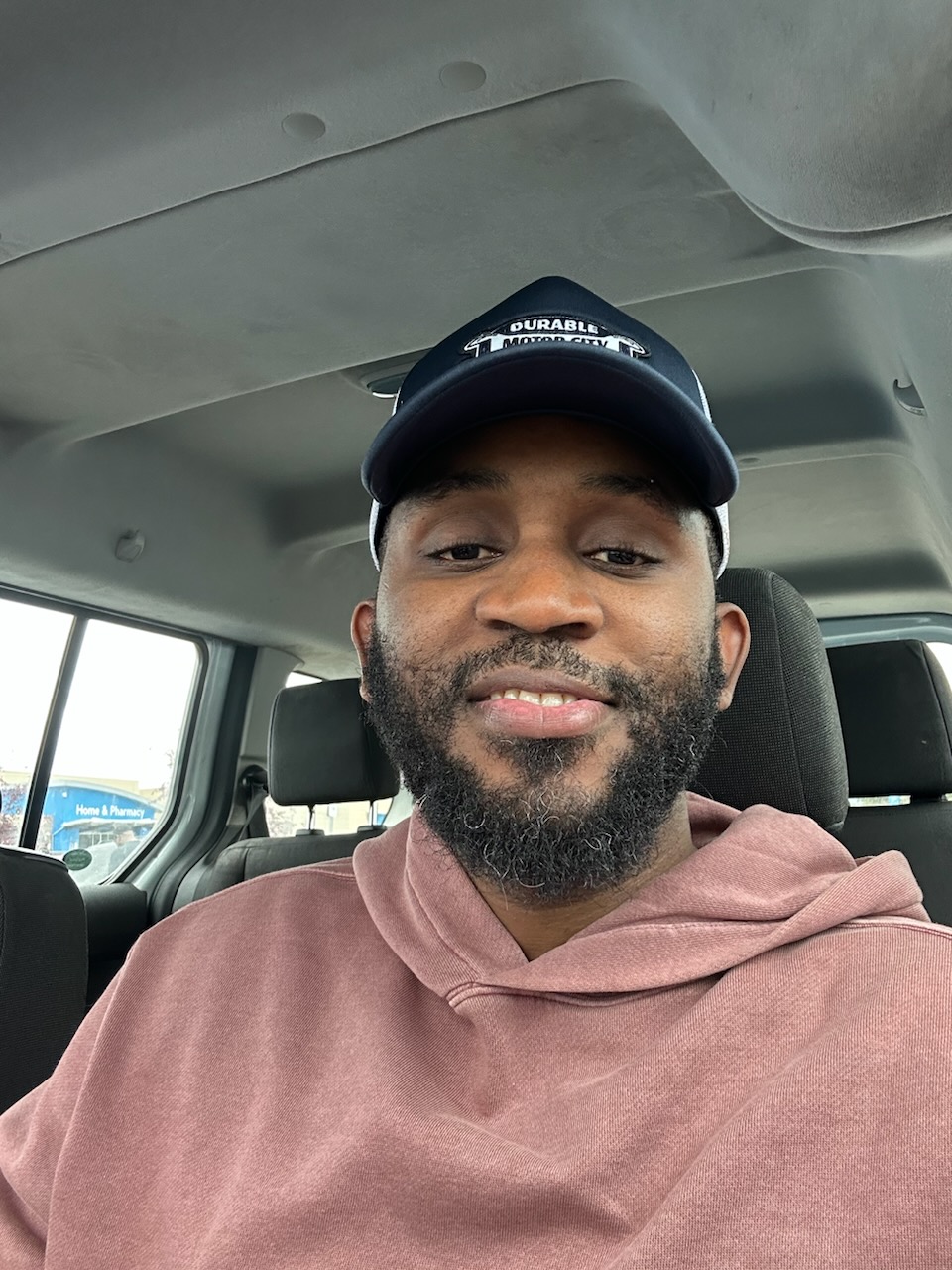 |
Stories of Hope | A Summer to Remember
August 29, 2025
A Summer to Remember
Stories from our Community Engagement Summer Camp
Summer is coming to an end, and we've made some great memories and shared wonderful activities that made this season so special. One of the highlights was our Community Engagement Summer Camp, a seven-week program filled with adventures, new experiences, and friendships. We’re excited to share some of the stories that made this year’s camp so special.
This year's Camp brought together 13 amazing young campers, including three brand-new participants! Together with our Lesko Discovery Center team, they explored Southcentral Alaska, with more than 20 park visits and guided excursions ranging from Anchorage to Willow to Girdwood. The campers especially loved the Reindeer Farm in Palmer, the private tour, planetarium show, and science demonstrations at the Anchorage Museum, and the Botanical Gardens, where they participated in a scavenger hunt and "Nutrition in the Garden" cooking class. Other highlights included the Anchorage Trolley Tour, a Fourth of July barbecue, and a karaoke party to celebrate the last day of Camp. In between excursions, campers also participated in recycled art projects, themed activities, group games, and visits from community partners like the Anchorage Fire Department, Alaska Native Heritage Center, and more. These partnerships gave campers hands-on learning, exposure to Alaska’s history and culture, and unforgettable experiences they would not have had otherwise.
Camp Stories
Each camper experienced moments of growth and joy. One camper, Lindsey, who usually prefers quiet activities like coloring, listening to music, and reading, impressed everyone with her kayaking skills—confidently crossing the lake and showing off her strength and independence. Her mother said, "Lindsey loved [Camp] and it got her out and about and doing many fun things she may have not ever done. Our family is thankful for this camp that Lindsey has got to participate in. We appreciate the opportunity."
In the play area at the Aviation Museum, the campers took turns playing pilot, navigator, and passenger—they loved making their own announcements, offering food and beverage service, and choosing the next destination for "Hope Airlines." One camper conquered her fear of the dark at the planetarium show and the movies and tried every activity that was offered to her. At the Pioneer Peak “you-pick” farm, the group encountered an unexpected rainstorm and used giant rhubarb leaves as makeshift umbrellas. At the karaoke dance party on the last day of Camp, the campers sang, wore costumes, and waved twirling ribbons, making it the best way to end such a fun summer together.
Parents consistently shared their gratitude and expressed appreciation for the team’s care and commitment, and many shared excitement about returning next year and even transitioning into adult programming at the Lesko Discovery Center. One grandparent said their non-verbal camper came home in a good mood every day, and another parent described the program as “the best we’ve seen.”

Our Camp Staff
Camp was made possible thanks to our Community Engagement staff. This year, our Discovery Center team was strengthened by the addition of our Community Engagement Recreation Coordinator, Kate Zagar (left). Kate joined our team after several years of corporate work, seeking more meaningful and purpose-driven work. From the beginning, she has had exceptional drive and determination to deliver the highest quality services, and she has enriched our programs with her innovation and creative energy.
Throughout Camp, Kate was present every day alongside staff, working to ensure the program ran smoothly. She made it her mission to connect with each camper and their families, welcoming each one personally and developing those relationships. She showed exceptional commitment to inclusivity, taking a hands-on approach to support campers with intensive needs and making sure everyone had the opportunity to participate fully. When asked what she enjoyed most about leading this year's Camp, she said, "The campers! Getting to know someone over the course of seven weeks and seeing their face light up after trying something new is incredibly special. I was constantly amazed by all the things they were passionate about." Kate's leadership, creativity, and compassion have elevated the Discovery Center’s work, and we are deeply grateful for the impact she—and the entire camp team—made in creating a welcoming, inclusive environment for all.
Looking Ahead
We are already planning for Summer Camp 2026, with goals of building partnerships with schools to welcome interns, expanding music and theater programming, adding camping and outdoor skill days, and inviting family members to volunteer so they can experience Camp alongside their loved ones. We hope to continue offering an wide variety of meaningful experiences for campers.
How You Can Help
Our Summer Camp thrives with the support of our community. You can make a difference by donating to help keep Camp affordable, volunteering your time or talents, suggesting activities and excursions, or connecting us with musicians, artists, or other community partners. We are especially interested in adding music and theater components next year. If you have an alma mater with a disability program or know someone who might like to collaborate, please reach out—we’d love to connect.
Contact our Community Engagement team
Check Out Some of Our Favorite Photos
Healthy Habits for Shift Workers
August 25, 2025
Shift work is common in healthcare, hospitality, public safety, and other essential job fields. Working evenings, nights, or rotating shifts allows people to serve during critical times and enjoy daytime flexibility, but because these work patterns disrupt the body’s natural circadian rhythm—which guides sleep, metabolism, and hormone release—they call for more thoughtful self-care. With the right strategies and intentional habits, shift workers can effectively maintain their physical and mental well-being.
Prioritize quality sleep. Sleep powers every system in the body, from immune function to digestion to memory. Establishing a consistent sleep schedule and aiming for 7–9 consistent hours of sleep will help your circadian rhythm adapt to non-traditional work schedules. Create a cool, dark, and quiet environment using blackout curtains, an eye mask, earplugs, and white noise. Try taking a short nap before work, and go to bed as soon as possible after your shift to capture your prime sleep window.
Plan your meals. Shift work can disrupt hunger signals, leading to skipped meals or erratic snacking. Come to work prepared with balanced meals with fruits, vegetables, whole grains, and lean protein, and keep healthy snacks on hand. Avoid heavy meals before bed, limit sugary drinks, caffeine, and alcohol, and drink plenty of water throughout the day.
Stay active. Exercise is an essential part of anyone’s wellness routine, but even more so for shift workers. Regular movement helps improves metabolism, mood, energy, and sleep quality. Try to work out before your shift, take brief stretching and walking breaks during work, and avoid intense workouts right before bed..
Support your mental health and work-life balance. Shift work can sometimes feel isolating, so connect with loved ones and engage in hobbies and community activities on your days off. Pursue interests that help you unwind and manage stress, such as meditation, yoga, and reading. If you experience persistent mental health or sleep issues, consult with a healthcare professional.
Shift work doesn’t have to compromise health. With consistent routines, planning, and self-care, shift workers can stay energized, healthy, and resilient—on the clock, and off.
Quick Self-Care Breaks on the Job:
- Box breathing: Inhale, hold, exhale, hold for 4 counts each to calm your nervous system.
- Neck and Shoulder Release: Roll your shoulders and tilt your head to relieve muscle tension.
- Mindful Pause: Take 3 deep breaths, focusing on clearing your mind.
- Mini Visualization: Picture a calm scene for relaxation.
- Hand Massage: Massage your palms and fingers to improve circulation.
- Short Breaks: Get up and stretch or go for a short walk about every hour.
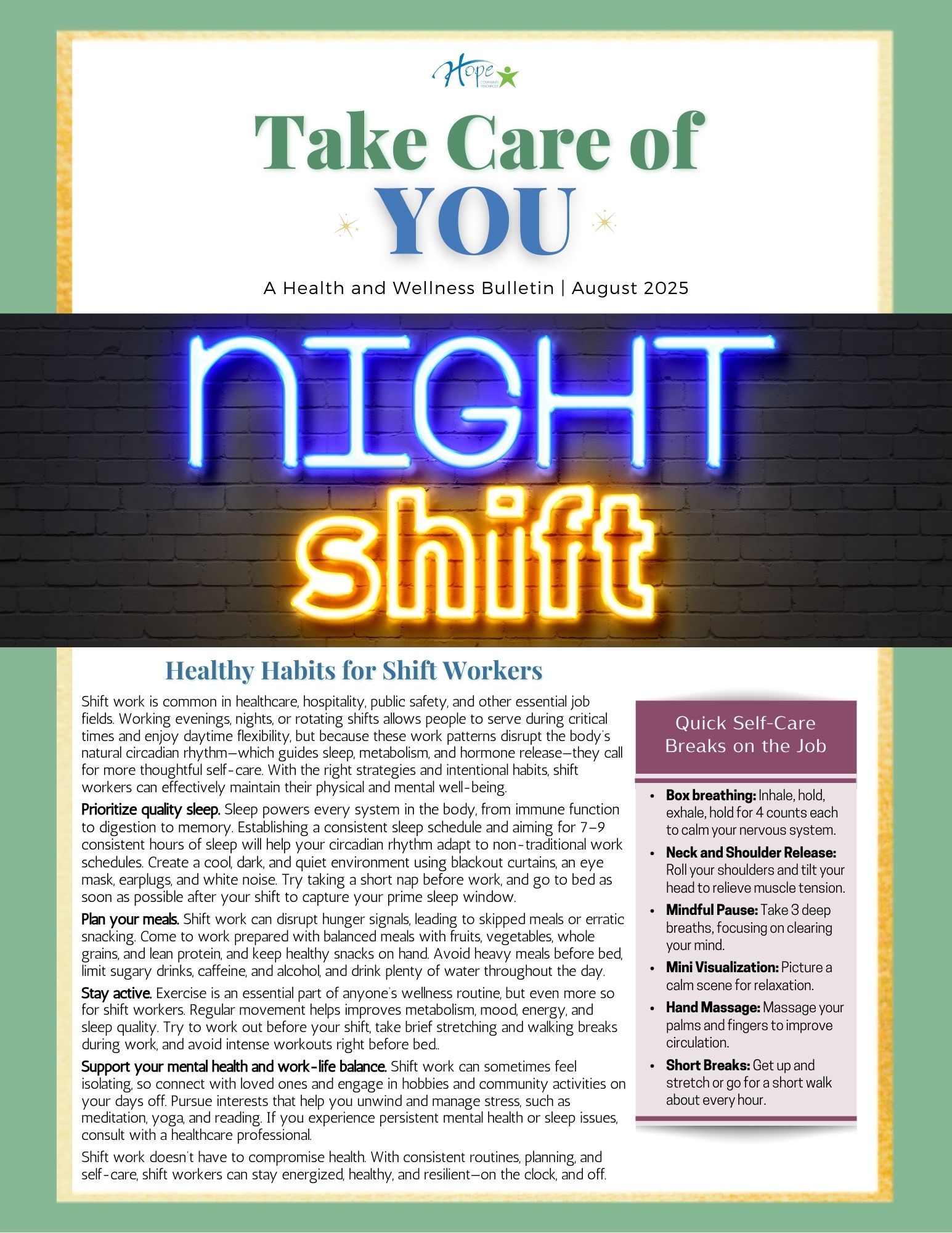
Happy Hope Anniversary, Ruvi Lesano
August 21, 2025
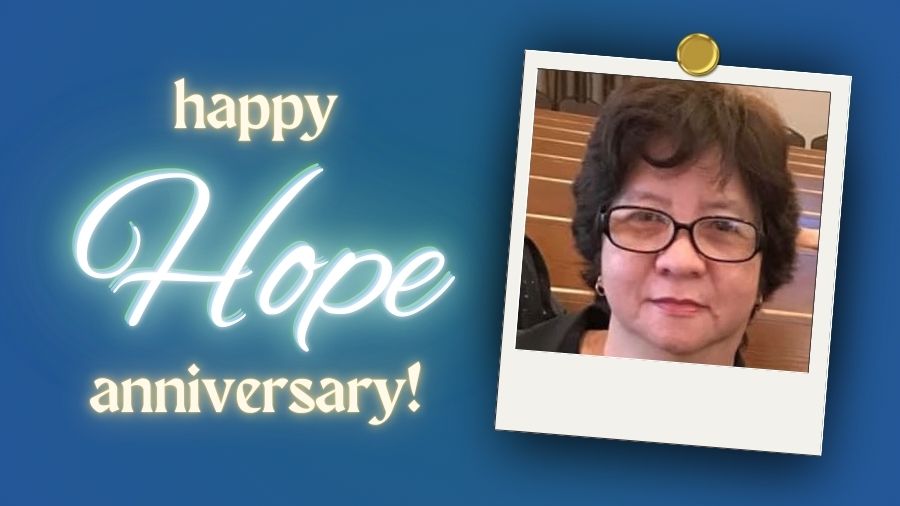
John Dittrich Retires from Hope's Board
August 15, 2025

Happy Hope Anniversary, Margaret Grasse
August 6, 2025
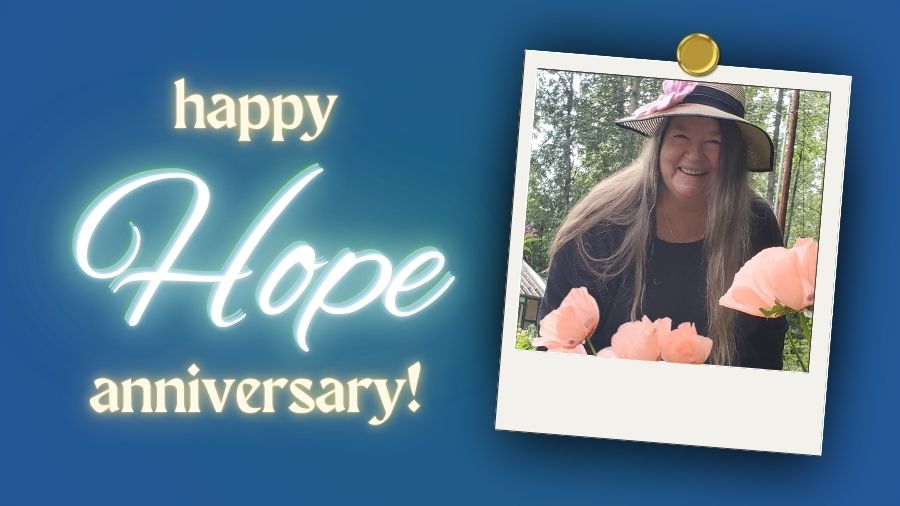
Stories of Hope—United in Disability Pride
July 31, 2025
Dear Friends,
Celebrating Disability Pride on beautiful summer days—last weekend in Anchorage and the one before in Soldotna—were joy-filled moments to come together to honor the beauty and strength of our diverse experiences, in addition to the impact of the Americans with Disabilities Act (ADA) which was signed into law July 26, 1990. We came together, rain or shine, to recognize that disability is not a “challenge to overcome,” but a source of insight, creativity, and resilience.
The history of disability advocacy highlights champions like Judy Heumann and Justin Dart, who tenaciously worked to break down barriers, whether advocating for accessibility, inclusive policies, or recognition of individual gifts and talents. This month has given us the opportunity to pause and celebrate the advocates who’ve secured ramps, captions, and accommodations; the creators who have elevated the use of technology and adaptive tools; the teachers, leaders, and peers who have shown unwavering solidarity in the quest for equality. Through the decades our united voices have reshaped laws, insights have informed technology, and our compassion has strengthened communities. And while the work feels never ending, it’s important to pause and reflect on the steps of progress.
Each year as we celebrate the signing of the ADA, I recommit to the work ahead and invite you to share the commitment to continue to break down barriers to accessible housing, health care, transportation, employment, and community engagement. Roger Wilkins said, “We have no hope of solving our problems without harnessing the diversity, the energy, and the creativity of all our people.”
Let’s go forward together!
Michele Girault, Executive Director
Healthy Posture: A Foundation for Musculoskeletal Health
July 31, 2025
Many physical issues—from persistent back pain, headaches, and neck tension to breathing difficulties, circulation problems, and even digestive troubles—can often be traced to poor posture. Slouching, whether while sitting at a desk, standing in place, or scrolling on a phone, compresses the lungs, restricts blood flow, and places undue strain on the spine and surrounding muscles. Over the years, these small, repeated habits can lead to chronic discomfort, fatigue, poor circulation, and, in more severe cases, a noticeable hunch or curvature of the back as we age.
Healthy posture is not about rigidly holding yourself in a certain position. It is about allowing your body to rest in its natural curves and alignment so it can function efficiently and with minimal strain. When your head is balanced naturally over your shoulders, your shoulders remain relaxed; when your core muscles are gently engaged, your spine is more stabilized; when your weight is evenly distributed, your muscles no longer need to overcompensate to keep you steady; when your feet are flat on the floor when sitting and shoulder-width apart when standing, blood flow improves and stress on your joints is lessened. This balanced state conserves energy, reduces compression on vital organs, and allows everything to work more effectively. Better breathing and blood flow contribute to more energy throughout the day. Proper alignment can even make a positive influence on your mood and confidence.
Posture affects far more than just those who spend long hours at a desk. The way we stand in a grocery line, walk down the street, drive a car, and hold our devices all have long-term effects on our spine and muscles. When alignment is compromised, especially chronically, joints and ligaments absorb stress unevenly, resulting in fatigue, pain, nerve compression, poor circulation, digestive issues, a gradual loss of flexibility, and ultimately, a diminished quality of life. Awareness and consistent small adjustments are the key to protecting posture—and your overall health, comfort, and mobility.
Tips to maintain healthy posture:
- Stay aware: Regularly check how you’re sitting, standing, or using devices like your phone.
- Move often: Set timers to stretch or walk every 60 minutes.
- Strengthen & stretch: Focus on your core, back, shoulders, and flexibility in your hips and legs.
- Use support: Adjust your chair and monitor, keep feet flat, and avoid crossing your legs.
- Get help if needed: Physical therapy, chiropractic care, and massage can help restore alignment and relieve tension.
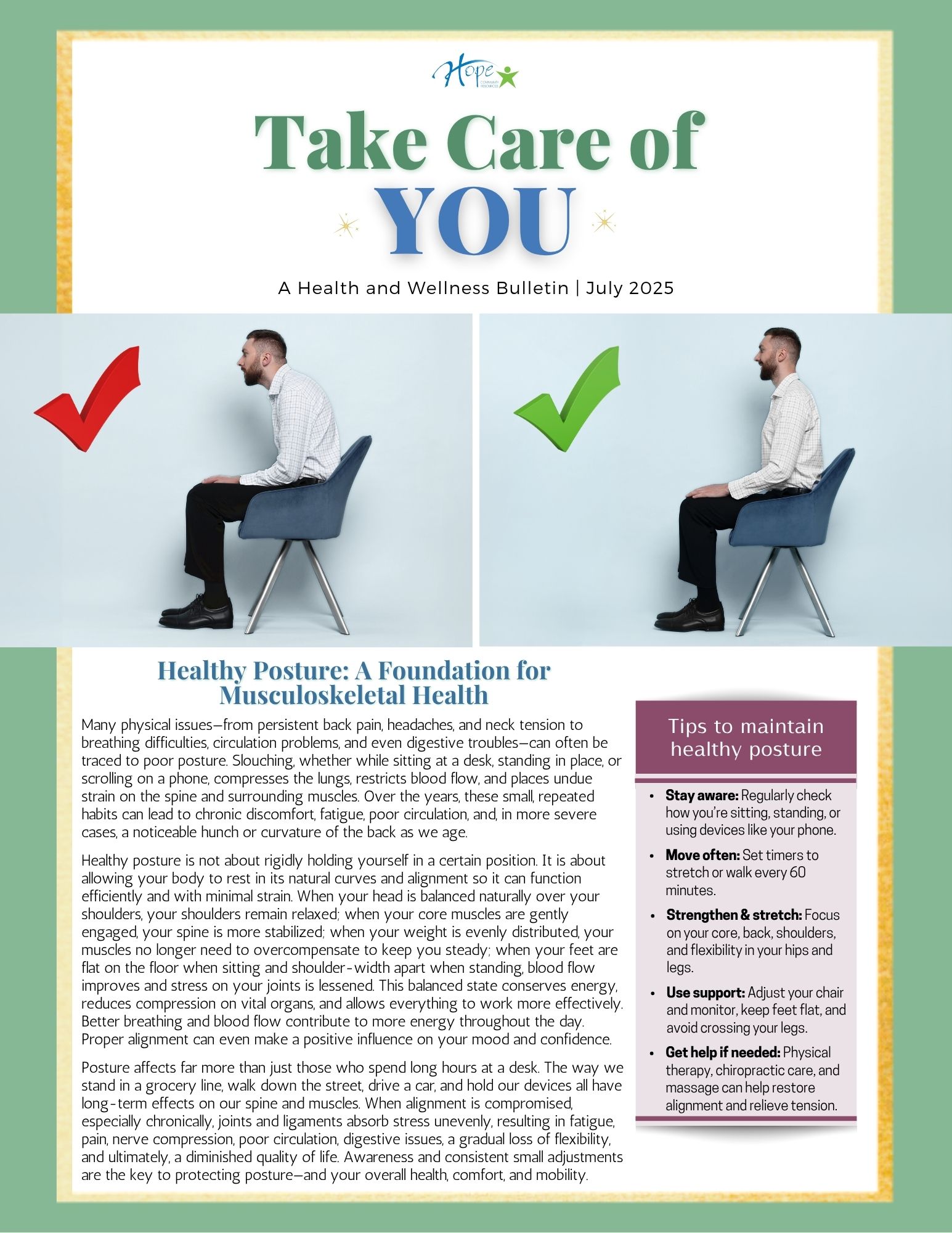
Happy Hope Anniversary, Barbara Sperling
July 14, 2025
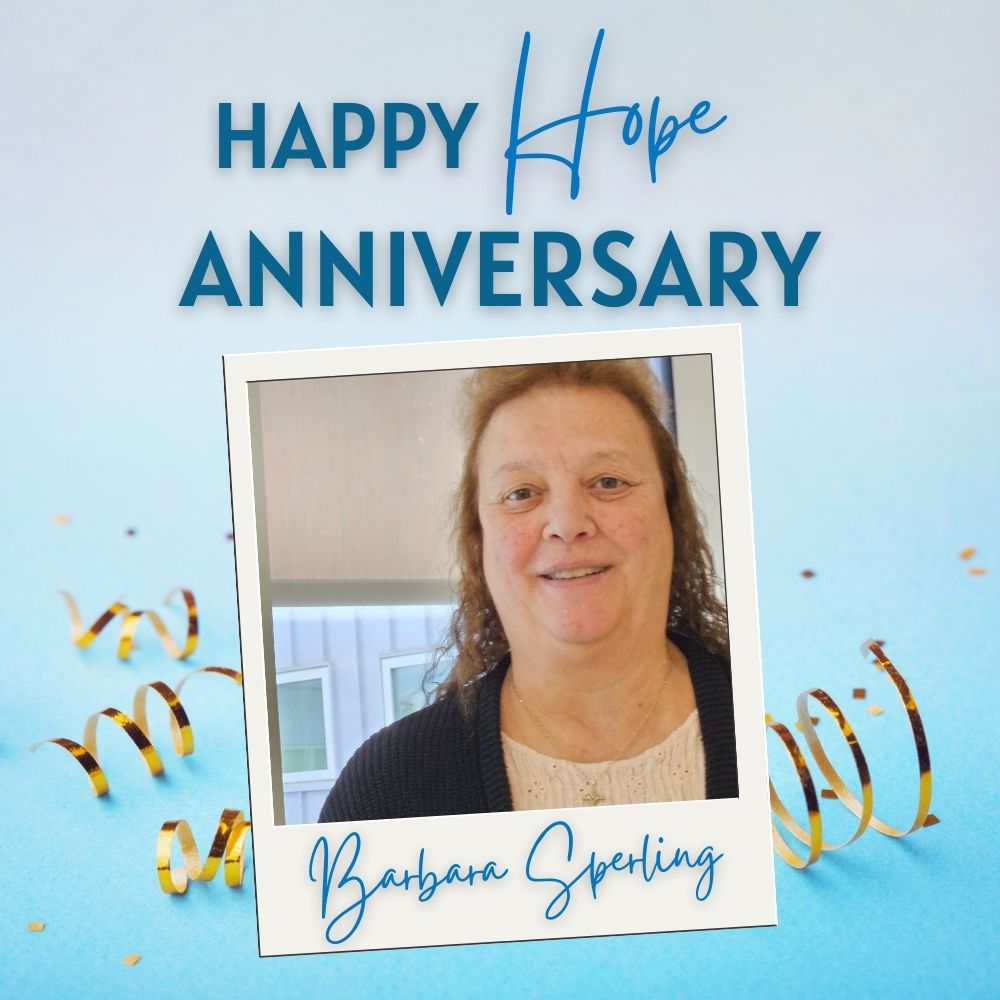
Wellness Bulletin: Eye Health
July 8, 2025
Our eyes play a major role in how we experience the world, whether through sight or as part of our overall health. Eye health is about more than just clear vision—it also involves preventing disease, managing existing conditions, reducing strain, and promoting well-being at every stage of life. Regular eye exams, healthy habits, and protective measures can help maintain eye function and detect other health concerns.
Many eye diseases—such as glaucoma, macular degeneration, and diabetic retinopathy—can be subtle and develop gradually. Adults ages 18 to 39 should have an eye exam at least every two years, and those over 65 or with diabetes or a family history of eye disease should go annually.
Protecting your eyes from sun exposure is vital. Over time, UV rays can contribute to cataracts and age-related macular degeneration. Look for sunglasses that block 99 to 100 percent of both UVA and UVB rays whenever you're outside, and wear a brimmed hat for added protection. Never look directly at the sun—even briefly.
Digital screen can lead to eye fatigue and strain. Follow the 20-20-20 rule (see sidebar) to help relax eye muscles. Also, blink often, adjust screen brightness and contrast, use night mode or blue light filters, increase text size for easier reading, and keep screens 20 to 24 inches from your eyes, positioned and just below eye level.
Nutrition matters, too. Leafy greens, orange vegetables like carrots and sweet potatoes, and omega-3-rich fish like salmon and tuna support eye health. Vitamins A, C, E, and zinc help protect against dryness and degeneration.
Other important habits include getting enough sleep, staying physically active, maintaining a healthy weight, quitting smoking, and wearing protective eyewear when needed. If you wear contacts, follow proper hygiene guidelines to prevent infection.
Make eye care a priority and a regular part of your routine—taking steps today will support your health and quality of life for years to come.
